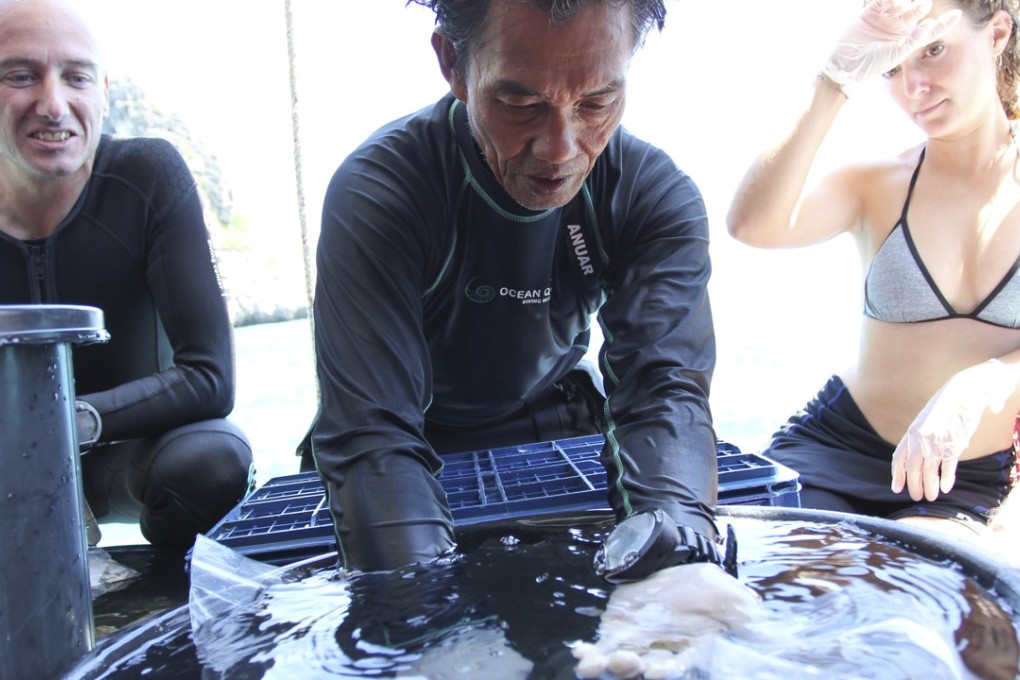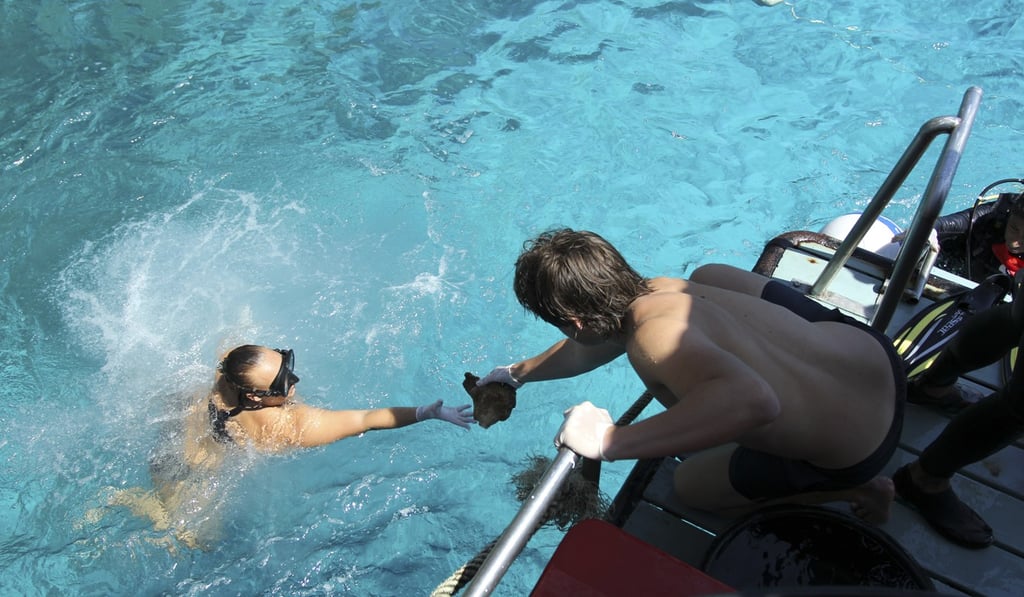Coral reefs: divers volunteer as ‘gardeners’ to restore dying corals in Thailand
Amid fears that most of the world’s corals will vanish by 2050, hope blooms in the form of an environmentally friendly restoration technique, as witnessed off the island of Koh Ha

In contrast to many of Thailand’s most popular islands, Koh Ha’s charms lie exclusively beneath the water. The frenzy of boats that surrounds the rocky archipelago begins each day at about 10am, as divers and snorkellers arrive and make ready to marvel at what coral still remains in the area, some 35km (22 miles) to the southeast of the Phi Phi islands. Amid the hustle and bustle of tourists, however, some are here with a different purpose. They are intent not only on admiring the corals, but on trying to save them, too.
Coral reefs around the world are in peril. Between 2014 and 2017, warm water caused the longest global coral bleaching event on record, according to the United Nations Environment Programme (UNEP). Australia’s Great Barrier Reef, the world’s largest reef system, lost some 30 per cent of its corals, a report published in science journal Nature in April concluded. A 2011 paper published by the non-profit World Resources Institute, working in collaboration with several agencies including The Nature Conservancy and the UNEP World Conservation Monitoring Centre, suggests that more than 90 per cent of the world’s corals will have vanished by 2050.
Reefs are an essential part of marine ecosystems, scientists say, sheltering between a quarter and a third of all marine species. Studies show that without them, food chains and local fishing industries would be susceptible to collapse. They have also been found to protect coastlines from erosion and extreme events, research revealing that coral reefs can absorb up to 97 per cent of wave energy.
In a bid to raise awareness of just how dire the situation has become, the International Coral Reef Initiative has declared 2018 as the “International Year of the Reef”.
Efforts by scientists and conservationists to save the planet’s coral reefs have been gaining momentum since the 1970s. But aiding recovery is a slow and laborious process that requires constant monitoring, as well as funding and resources that often do not exist.

Despite their stony allure, corals that form reefs – so-called hard corals – are, in fact, living organisms, polyps that secrete calcium carbonate to form a protective skeleton. As with many endangered species, corals are slow to reproduce, and growth rates range from just a few millimetres to 10cm per year, depending on the species, available nourishment, and water temperature, salinity and turbulence. It can take up to 10,000 years for a mature coral reef to form.
